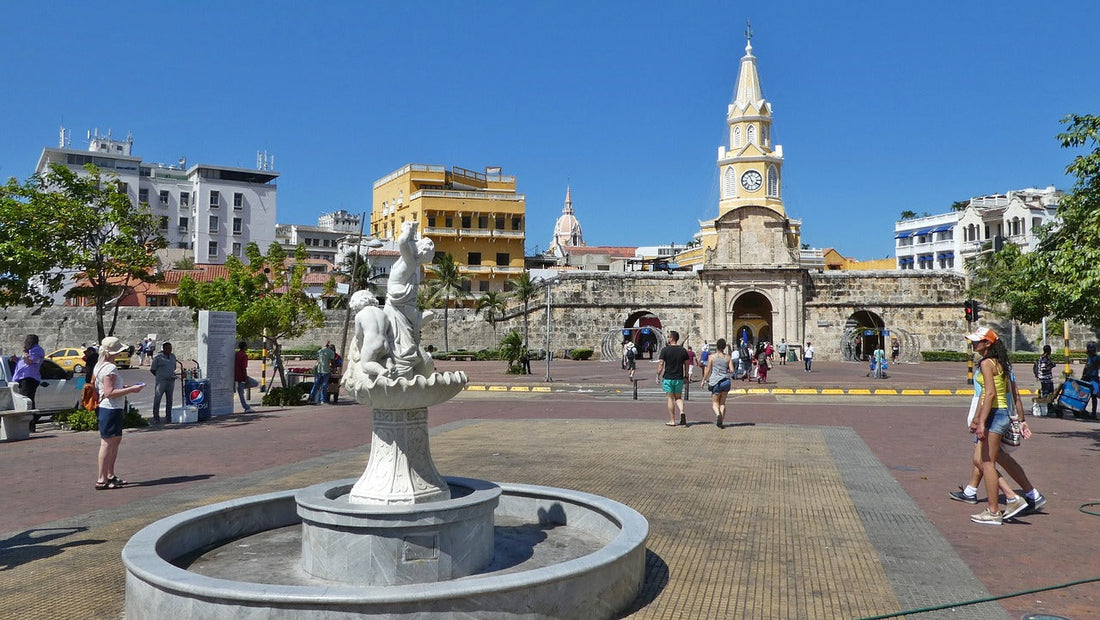
Your Essential Guide to Mastering Local Expressions
Share
1. Greetings and Basic Phrases
Colombians are known for their warm and friendly demeanor. Learning these basic greetings and responses will ensure you start every conversation on the right note.
- Hola, ¿cómo estás? (*Hello, how are you?*)
- ¿Qué más? (*What’s up?*)
- Bien, ¿y tú? (*Good, and you?*)
Colombians love small talk. Asking about someone’s day, family, or plans is a great way to connect.
2. Polite Expressions and Courtesies
Colombian culture places a high value on manners. Polite expressions are an essential part of daily interactions.
- Por favor (*Please*) and Gracias (*Thank you*): Basics that you’ll hear and use frequently.
- Con mucho gusto (*With pleasure*): A uniquely Colombian way of saying "You’re welcome."
- ¿Me regalas...? (*Can you give me...?*): A soft and polite way to ask for something.
3. Expressions of Agreement and Affirmation
Understanding how Colombians express agreement or excitement can help you sound more natural.
- Claro (*Of course*): A common way to express agreement.
- De una (*Right away*): A very Colombian way of saying "Sure!" or "Let’s do it!"
- ¡Eso! (*That’s it!*/ *Exactly!*): Often used to cheer someone on or affirm something enthusiastically.
4. Regional Variations in Colombian Spanish
Colombia is a geographically diverse country, and its Spanish reflects that diversity. Here are some notable regional variations:
- Paisas (from Medellín): Known for using parce (*dude*) and pues.
- Caleños (from Cali): Often use ¿O qué? at the end of phrases.
- Costeños (from the Caribbean coast): Use rhythmic Spanish with phrases like ¡Ajá! (*What’s up?*).
5. Everyday Slang and Informal Expressions
Slang is key to mastering Colombian Spanish. Here are some common expressions:
- ¡Qué chévere! (*How cool!*): Expressing enthusiasm.
- Bacano (*Awesome*): Similar to *chévere*.
- Paila (*Too bad*): Used to describe unfortunate situations.
6. Food and Dining Vocabulary
Food is an integral part of Colombian culture. Knowing how to order or describe food will make your culinary experiences much richer.
- Una bandeja paisa, por favor. (*A bandeja paisa, please.*): A popular dish to try.
- ¿Cuánto cuesta? (*How much does it cost?*): Useful in markets or restaurants.
- ¿Tienen jugo de lulo? (*Do you have lulo juice?*): A tropical fruit commonly used for juice.
7. Navigating Transportation
Getting around Colombia involves some unique vocabulary:
- ¿Dónde queda...? (*Where is...?*): Essential for asking directions.
- Voy en un colectivo. (*I’m taking a shared taxi.*): Common transportation term.
8. Expressions of Surprise or Frustration
Colombians have a knack for expressing emotions vividly:
- ¡No me digas! (*You don’t say!*)
- ¡Uy, qué vaina! (*What a mess!*)
9. Compliments and Social Connections
Colombians appreciate compliments and engaging conversations. These phrases can make you sound charming and approachable:
- Me encanta tu país. (*I love your country.*)
- ¡Qué rico! (*How delicious!*): Can be used for food or experiences.
Practice Makes Perfect
To master these expressions:
- Practice with locals or language partners.
- Watch Colombian telenovelas or YouTube videos.
- Read Colombian Spanish stories to see these phrases in context.
Immerse yourself in Colombian Spanish and connect with the culture, people, and their way of life.
